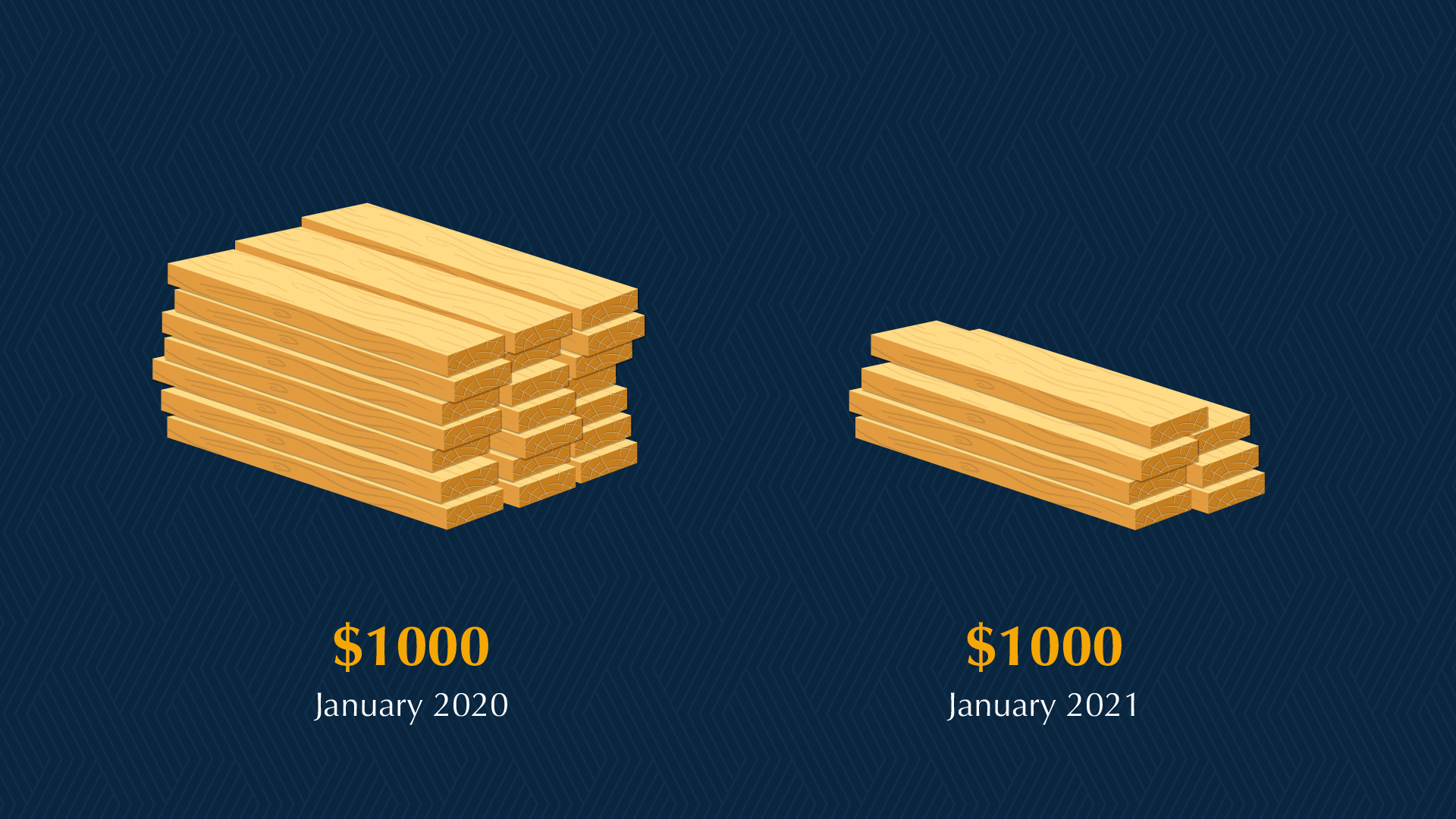Industries worldwide are currently facing significant supply chain issues due to the impact of Covid-19.
These challenges have resulted in a shortage of shipping containers, as carriers have concentrated their vessels on their most profitable Asia-North America/Europe routes. In turn, this has resulted in material shortages, order backlogs, and delivery delays here in New Zealand.
As a result, fewer goods and materials are available, and available materials cost more and take longer to purchase. This highlights the need for clients to review their insurance programme.

This graphic illustrates the dramatic increase in costs in some sectors.
These cost increases have resulted in the very real probability of one of our greatest fears for clients – underinsurance! Put simply, a sum insured that was previously adequate may well now be insufficient, potentially putting a person or business at risk of being in an inferior position than they were immediately before the loss. This includes just about everything you can think of; for example, your home, shed, commercial building, and home contents will all cost more to repair, rebuild, or replace.
Undertaking an annual insurance valuation on your commercial building and/or home is the most effective way to reduce your risk of becoming underinsured. People who don’t get valuations, or only do so every 2-3 years, are pretty much guaranteed to be underinsured. With the dramatic rise in material costs, there is the potential for this figure to be substantial.
Here are some specific considerations and pointers for the various types of insurance you may have in place:
Business Interruption
With the potential delays and cost increases, your Business Interruption policy is more important than ever. We recommend that gross profits are calculated from the latest financials available, and consideration given for Covid setbacks as required. Two key factors to consider are ascertaining correct indemnity periods and the length of time required to regain market share to pre-loss levels. There are multiple additional factors to consider, and we recommend discussing these in detail with your insurance advisor.
Material Damage (Plant and Stock)
Your Material Damage policy may also need to be revisited to establish whether the current limits in place would be adequate if you were in the position of facing a major loss. This will need to take into consideration whether the items and/or materials required for your business are still readily available and if they still cost the same to acquire.
Contract Works
When considering your contract works policy, in respect of the increase in materials and labour, is the contract price and overall sum insured still adequate? The figure for escalation during contract and escalation during rebuild may also need adjustment. Most insurers provide a stock provision of 5%; this could be inadequate and require negotiation to be extended.
Marine Cargo
Marine Cargo policies should be reviewed to establish whether the ‘plusage’ needs to be increased. Insurers will often provide an added allowance of +5 - 10% plusage on the invoice cost of goods purchased. Think about your position following a loss; would the cost to replace be the same? If you expect an increase in the cost to order replacement goods, you've got a good reason to review your plusage.
In addition, with the potential of multiple shipments, or backlog coming on the same shipment, it’s a good time to check and ensure your current limit any one conveyance is accurate.
Vehicles are also facing delays, and as the majority of workshops no longer have plentiful stock on hand, vehicles are taking longer to repair. The industry is experiencing some vehicle repairs taking in excess of 8 weeks, making the ‘Loss of Use’ extension (whereby you have cover for a replacement vehicle) something that should be seriously considered.
For the first time ever, we are also seeing second-hand vehicles holding their value or increasing in value. It’s not just the second-hand market that is being affected; even new vehicles are being insured for more than the original purchase cost because once they finally land in NZ, they are worth more. Again, going back to the delay issue, it can take over three months for the vehicle to get into NZ.
